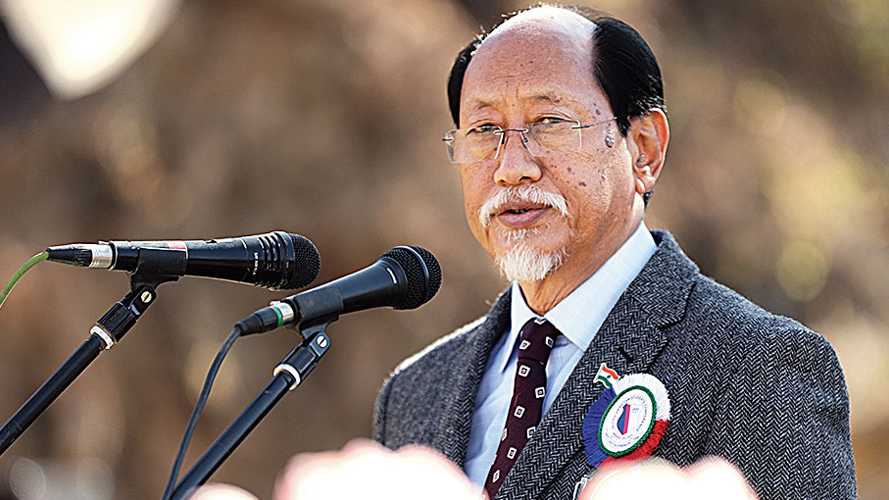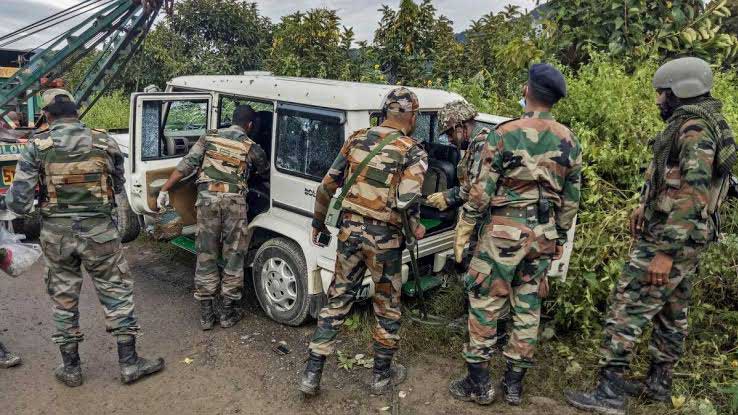The Centre will form a five-member committee to look into the possible withdrawal from Nagaland of the contentious Armed Forces (Special Powers) Act, 1958, which gives security forces extraordinary powers to search, arrest and shoot in designated trouble zones.
A joint media release by Nagaland chief minister Neiphiu Rio and two other leaders on Sunday revealed the decision, taken at a meeting that Union home minister Amit Shah had convened with northeastern leaders in Delhi on December 23.
Demands for withdrawal of the “draconian” law have grown louder following the death of 14 civilians this month in a botched counter-insurgency operation and its aftermath at Oting in Nagaland’s Mon district.
The possible withdrawal of the “disturbed area” tag and the AFSPA from Nagaland will be “based on the recommendations” of the five-member committee.
The committee will have to hand in its report within 45 days.
The additional secretary (Northeast) in the Union home ministry will head the committee, which will include the Nagaland chief secretary and director-general of police, the inspector-general of Assam Rifles (North) and a CRPF representative.
The decision to form the committee was taken along with several others at the December 23 meeting. Rio attended the meeting along with Nagaland deputy chief minister Y. Patton, the leader of the Naga People’s Front Legislature Party, T.R. Zeliang, and Assam chief minister Himanta Biswa Sarma.
Rio, Patton and Zeliang signed the media release that revealed the December 23 decisions, which include:
n A court of inquiry to initiate disciplinary proceedings against the army unit and personnel directly involved in the Oting incident, and action on the basis of the inquiry’s findings. Suspension with immediate effect of the identified personnel facing the inquiry.
n Government jobs to be provided by the Nagaland administration to the next of kin of the dead. The deputy commissioner and superintendent of police, Mon, will initiate the necessary steps in consultation with the village councils concerned.
The Nagaland delegation also asked Shah to replace the Assam Rifles unit in Mon — a demand by local people. The Assam Rifles is a paramilitary force under the administrative control of the home ministry and operational control of the defence ministry.
The army too released a media statement on Sunday, once again “deeply” regretting the loss of lives during the botched December 4 operation and its aftermath.
“The inquiry ordered by army is progressing expeditiously and all efforts are being made to conclude it at the earliest.... The Indian Army is also fully cooperating with the special investigation team (SIT) inquiry ordered by state govt & required details are being shared in timely manner,” the statement said.
“We have taken out notices for people to come forward & assist us in the inquiry by providing any information including videos, photos or any other material from original sources and will be grateful for the same. This can be conveyed on Whatsapp Messenger at +916026930283 or Army Exchange Helpline +913742388456.”
A source said that around 30 armed forces personnel were “involved” in the botched operation by the 21 Para commandos, stationed in neighbouring Assam’s Jorhat district.
The influential Konyak Union, which is seeking justice for the victims, said it would offer a reaction to the December 23 decisions after a meeting of all Konyak frontal organisations on Monday.
Meghalaya chief minister Conrad Sangma, who had sought withdrawal of the AFSPA from the Northeast following the Oting killings, tweeted: “Welcome the move of GOI, @AmitShah ji for approval to set up a panel to review imposition of the AFSPA in Nagaland. The panel should examine the whole of North East.”
Six mine workers returning to their village were killed in firing by security forces, who mistook them for militants, on December 4 evening near Oting.
Seven villagers among a group that had come looking for the miners were killed soon after in the forces’ firing during a protest that turned violent.
Another civilian was killed in Mon town the following day when the Assam Rifles fired on protesters that had entered its camp.
To calm tempers, the Rio government had convened a daylong special Assembly session on December 20. The session unanimously adopted a resolution seeking withdrawal of the AFSPA from the Northeast, specifically Nagaland, to strengthen the efforts to find a peaceful political settlement to the decades-old Naga problem.











